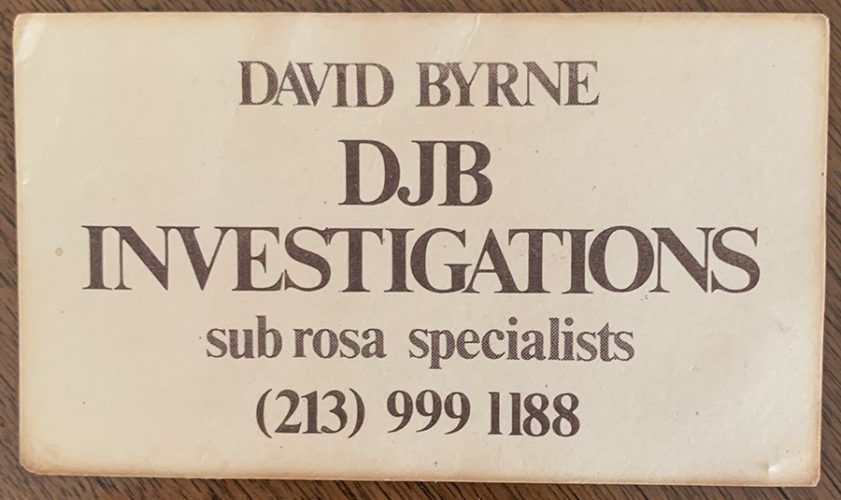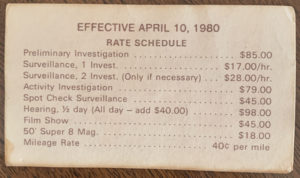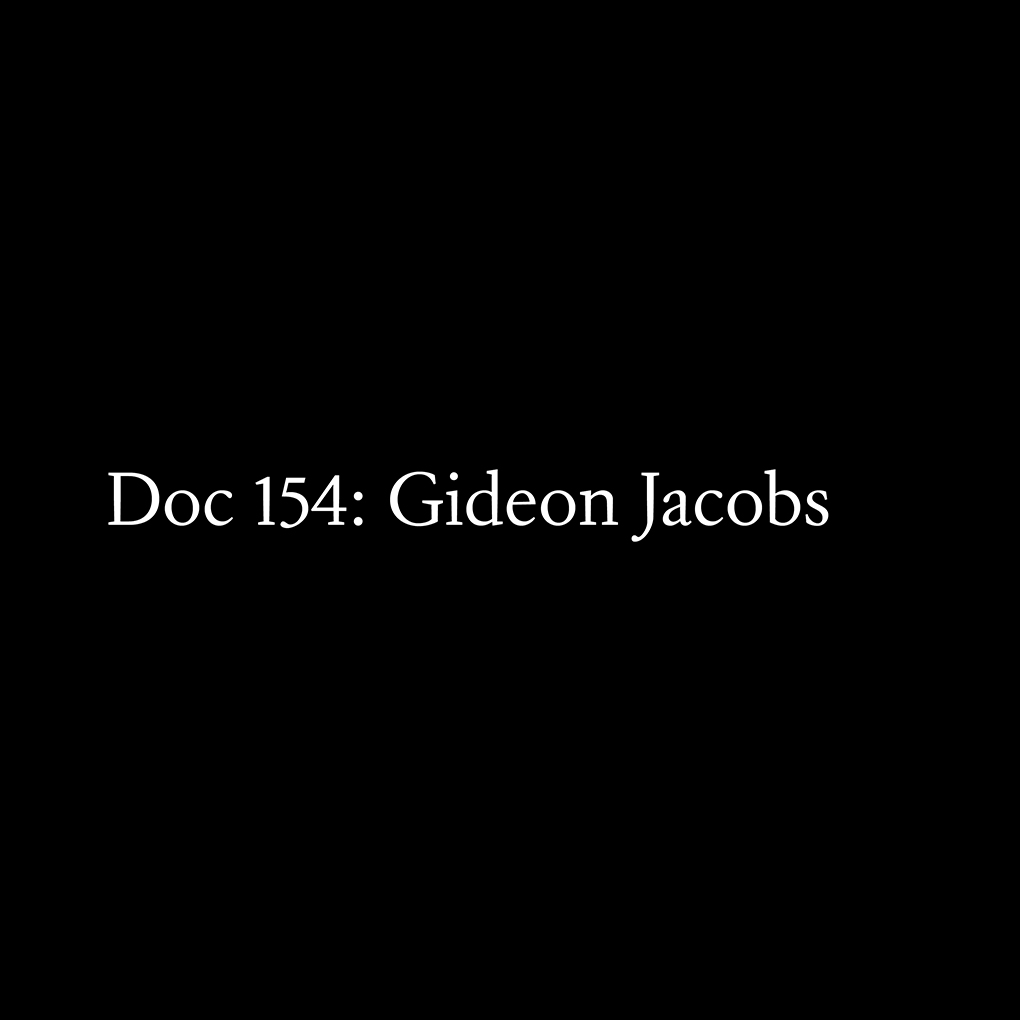
My mother didn’t leave too much behind when she died. Some books (I kept a bunch of those), a lone box of papers that included her one produced screenplay (kept too), and a narrow closet full of clothes I donated to Goodwill. She left a house, which she bequeathed to one of my cousins, and she left… I don’t know what. The house smelled of dog piss and cigarettes, the latter being the thing that killed her, and in the end, I couldn’t help but feel she had left her life unfinished; more so than most people do. When my father dies, he will leave the kind of plunder a pharaoh might, which he sometimes resembles, and we will both be buried, but this isn’t about capitalism—it’s about the ambiguities people leave, some more than others, and about a set of questions I’ll never be able to answer.
Why did my mother save the card above, for example? She certainly had a taste for the absurd—the card dates from the early 80s, a time when I was listening a lot to the soundtrack for a ballet called The Catherine Wheel, and so she certainly knew (because she listened to it too) who the other David Byrne was—but even if she may have gotten a laugh out of it, I suspect this card once had a practical application. My mother believed my father was having affairs (he eventually did have an affair, which ultimately ended their marriage), and so she must have hired David Byrne, “sub rosa specialist,” to keep track of him. I can’t think of any other reason she would’ve needed the services of a private investigator. At some point, she must have walked into the offices (where? Where? The card says ‘213’ but I keep imagining a strip mall in the Valley) much like Evelyn Mulwray in Chinatown, whom she kind of resembled anyway: upright and dignified, calculating and cool.

But what happened? Did this man dig up any dirt? Why did she keep the card, being the opposite of a pack rat, for three decades? Surely my mother had handled hundreds, if not thousands, of business cards over a lifetime. There is no way to find out. Scouring Google, plugging in slightly different terms like I’m trying to hack a combination lock, results yield David Joseph Byrne, PI, who died in Las Vegas in 2010, but he was only 55. Possibly the same guy—the middle initial seems to fit—but this means my mother would’ve hired some kid fresh out of college, which wasn’t her MO at all. And, so, I keep picturing the other David Byrne, whom it is a great pleasure to imagine staking out my father while sitting behind the wheel of an ancient Buick with a lukewarm cup of coffee, maybe wearing his famous oversized suit. But it wasn’t him. Among other things, my father, who had a cassette of Talking Heads’ 77 wedged in the player of his convertible until it broke, would’ve spotted him from a mile away.
So I am left with a series of nesting enigmas about an event it seems unlikely my surviving parent will tell the unvarnished truth about even if I were to ask him, so I don’t. And about my mother, walking into a room for which I have no coordinates, getting ready to tell an intimate story about her life. That’s the part I want to know about, though I suppose if I really did, I’d need to hire a detective. It’s just a pity that the only one I know never answers when I call. His phone just rings and rings and rings.
Matthew Specktor is an American novelist and screenwriter. His books include That Summertime Sound (MTV Press, 2009), American Dream Machine (Tin House, 2014), and Always Crashing in the Same Car (Tin House, 2021), as well as a book of film criticism. The Sting: A Novel Approach to Cinema (Soft Skull, 2011). He lives in Los Angeles.

